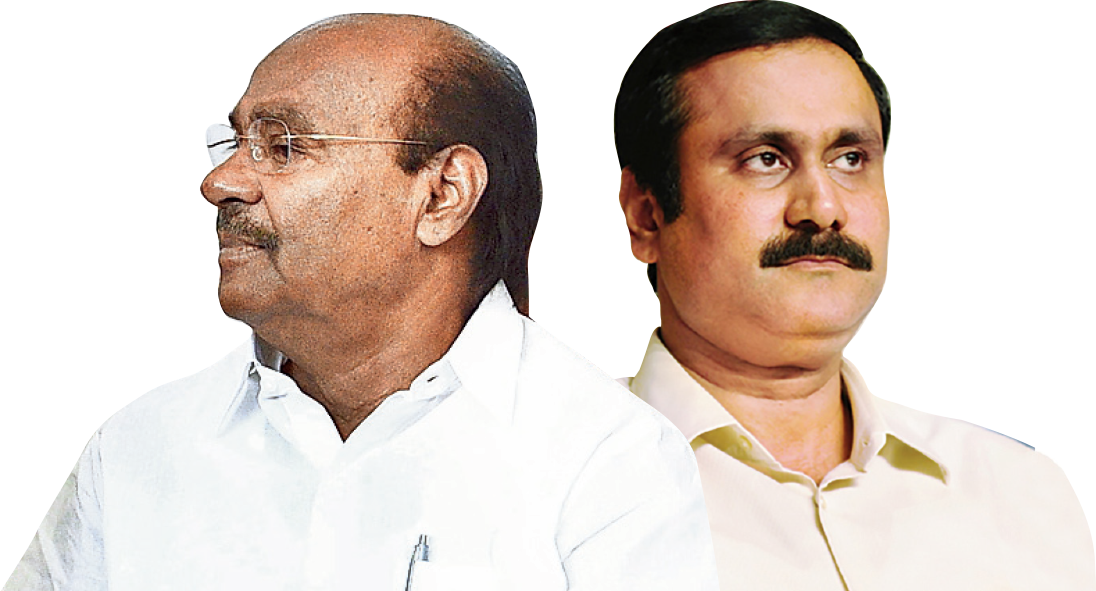Anbumani Ramadoss, Durai Vaiko and the inheritance of losses


PMK founder S Ramadoss and his son Anbumani at Loggerheads
Inheriting politics is not easy, as the two sons in Tamil Nadu politics have realized it. Anbumani Ramadoss, 56, is locked in with his father and PMK founder S Ramadoss (85). Durai Vaiko, 53, felt helpless because his father and MDMK founder Vaiko, 80, could not stop his son from being a son challenger at the party.
In PMK, differences have been brewing for years. It’s not a secret that Anbumani disagreed with his father in some past election alliances and seat sharing. All of this stood out at the party’s general council meeting on December 28, 2024, when Ramados announced the appointment of his grandson P Mukundan as chairman of the party’s youth wing. Anbumani objected, saying Mukundan had just recently joined the party. Ramados lowered his feet. “I set up this party,” he retorted in the microphone, loud and clear, “What should I follow, understand?”
It was Ramadan thirty years ago, and he said none of his family would enter politics. But why do the younger generation suffer for older commitments? Prior to the PMK’s special general meeting on May 28, 2022, the column endorsed Anbumani’s appointment as party president and cited five reasons. Here is the fifth: “Anbumani may draw a new path for PMK. It’s also his challenge.” Anbumani faces this challenge as Ramadoss named himself the founder (another bias in his promise not to hold any position at the party).
Durai resigned and resigned within 24 hours as MDMK chief secretary, and his problems were slightly different. Durai was appointed secretary of the party headquarters in March 2022 and encountered protests from some senior staff. Now Durai believes that the Party Deputy Secretary General Mallai Sathya is trying to make him stand out. Vaiko started the defense last week when the MDMK Trichy district department passed a resolution calling for the removal of Sathya from the party post.
This made it clear to Durai that his father could not let Sathya go, even when older people like Gingee Ramachandran and L Ganesan rebelled and were removed from office in 2007, he remained one of Vaiko’s staunch supporters.
Political inheritance is our national pastime. From Kashmir to Kerala, the son, in a few cases, the daughter-has taken over the father (mother, as far as the Nehru family is concerned, his record records for four generations). Most of them have encountered internal turmoil, with only one prompt that has attracted public attention.
There is not much difference between business and politics when it comes to inheritance quarrels. It may begin during succession planning and emerge when generational differences and personality conflicts outweigh love, loyalty and mutual respect. If not addressed quickly, this could threaten institutions established by older people, while juniors try to develop in their own ways.
Business consultant Enrique M Soriano, whose observations apply to Indian political families, said fathers often find the challenge of abandoning the ins ropes they have mastered over the years, while sons are eager to prove their worth and leave their mark. “The struggle for power can show how conflict is managed and how decision-making is made,” Soriano said.
This kind of political conflict is not easy to resolve. After the son takes over, the father should let go, and at best he is an independent consultant. For his role, if the latter chooses to suggest, the son should listen or pretend to listen to the father. It’s easier said than done. The only solution to conflict is to fear mutual losses. And, power only occurs when the party is different from PMK and MDMK. MK Stalin and Udhayanidhi listen?
Disclaimer
The views expressed above are the author’s own.
End of the article





